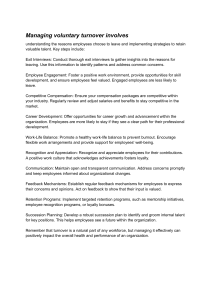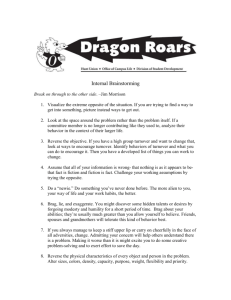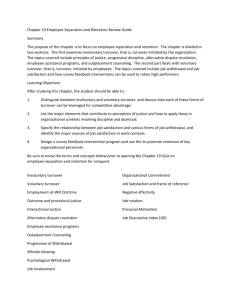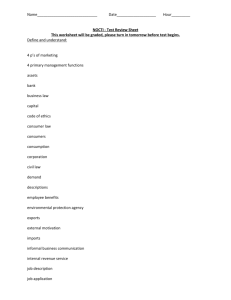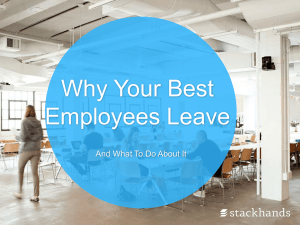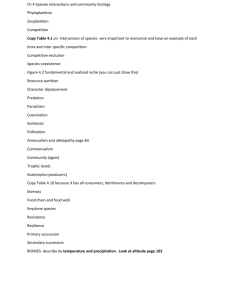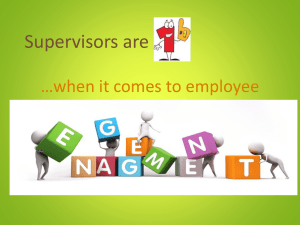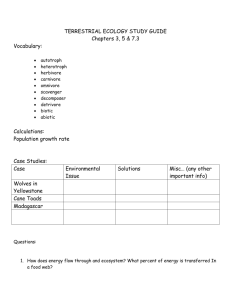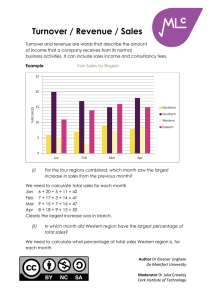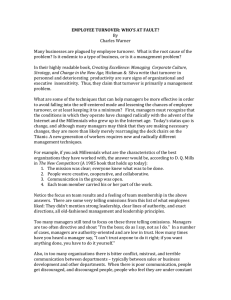Presentation - St. Cloud State University
advertisement
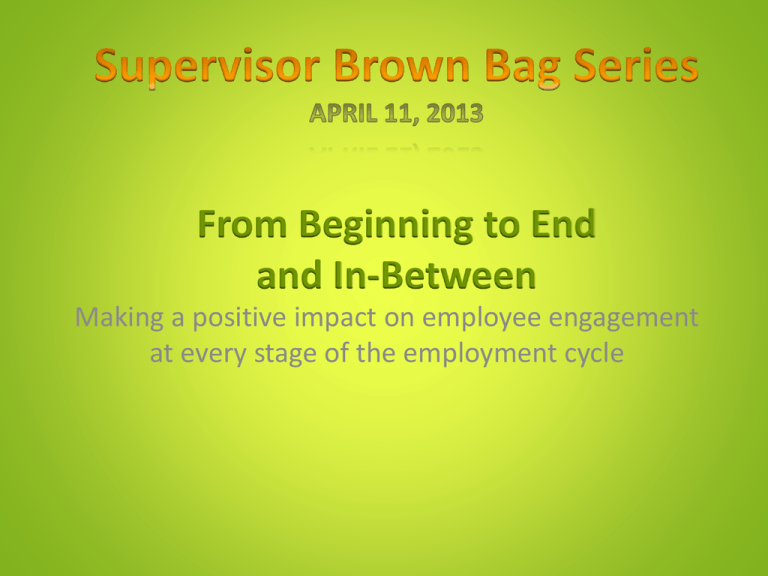
From Beginning to End and In-Between Making a positive impact on employee engagement at every stage of the employment cycle What is engagement? Engagement is the process of leading people by enabling them to want to do whatever is necessary to ensure the continuous high performance and success of the organization. Scarlett Surveys International The Three Types of Employees 1. Engaged: Employees work with passion and feel a profound connection to their company. They drive innovation and move the organization forward. 2. Non Engaged: Employees are essentially “checked out.” They’re sleepwalking through their workday, putting time—but not energy or passion—into their work. 3. Actively Disengaged: employees aren’t just unhappy at work: they’re busy acting out their unhappiness. Every day, these workers undermine what their engaged coworkers accomplish. Supervisors are …when it comes to employee Reasons Employees Leave Voluntary… • Retirement • Promotion • Life change Involuntary • Dismissal for cause • Layoff • Non-renewal Involuntary Separation • Use discretion • Treat the employee with dignity • If terminated for cause – Work with HR and IT to ensure security of property and information – Arrange time for employee to collect personal items Voluntary Separations • Encourage employee to meet with HR for exit interview • Arrange an appropriate send-off event Suggestions for Good Practice • Refer to the “Change in Employment Status Checklist” • Communicate within the department and other key constituents Preparing for Turnover: Succession Planning What is it? • Preparation…not pre-selection • Ongoing…not one-time • Forward-looking…not focused on present “Don’t be irreplaceable. If you can’t be replaced, you can’t be promoted.” -- Unknown Preparing for Turnover: Succession Planning How does it work? • Identify critical functions in the department • Identify employees that could learn other duties – Who is interested in advancement? – What are the existing competencies? • Formalize the development plan • Provide training and mentoring Preparing for Turnover: Succession Planning Why bother? • Reduces stress caused by turnover – not a crisis • Maintains level of productivity and service quality • Enhances employee morale
